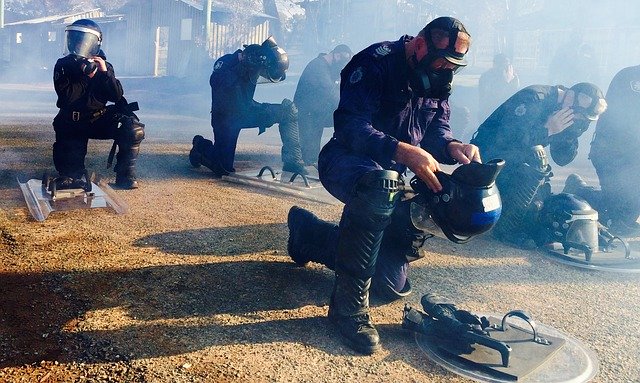SRCC claims are going to rise in more unstable world: Swiss Re’s Nikhil da Victoria Lobo
- September 11, 2025
- Posted by: Beth Musselwhite
- Category: Insurance

At Swiss Re’s Baden-Baden media conference, Nikhil da Victoria Lobo, Head of P&C Reinsurance for Western & Southern Europe, Middle East & Africa, emphasised that rising global instability will lead to more Strikes, Riots, and Civil Commotion (SRCC) claims, stressing the importance of understanding risk accumulations and fostering partnerships to mitigate them.
SRCC is often a core sub line of coverage in property policies, mainly commercial but occasionally residential. According to da Victoria Lobo, over the last 20 years, the industry has witnessed a substantial 3000% increase in the number of SRCC claims, highlighting its growing relevance in the re/insurance sector.
Da Victoria Lobo emphasised that Swiss Re’s goal in the industry is to fulfil its value proposition and reduce uncertainty in the world.
“I believe it is really important, first, to price this risk appropriately, as the world is becoming more unstable and we will see an increase in these claims. Second, we work on understanding the accumulation of this risk. Third, we must partner with our clients, and collaborate with broader civil society, to build preventive measures that reduce volatility and mitigate these risks,” he said.
Additionally, he stressed that SRCC coverage is not uniform but varies by country; therefore, it is vital to understand the nature of the risk in each domestic market.
This involves considering factors like urbanisation, population distribution, and the spread of commercial interests. Da Victoria Lobo also suggested evaluating the cohesion of civil society, including the response of the police and political systems. By thoughtfully analysing these factors, insurers can make more informed pricing decisions rather than relying on a simplistic blanket approach of charging more or less.
He remarked, “The other piece to highlight is that SRCC claims and the geopolitical stability can be indirect, it can be simultaneous, they can occur in locations where it’s unexpected.”
Notably, the ongoing riots in New Caledonia, which began in May 2024, were unexpected and caused significantly more damage than anticipated. The violent protests in the French Pacific territory led to the declaration of a state of emergency on 16 May.
Da Victoria Lobo said, “For the New Caledonia event in particular, it was a surprise I think for many people in the industry, obviously those that follow the political dimensions were maybe less surprised, but for the industry it was a surprise, both in location, and also in quantum, with around $1 billion of insured losses from these riots.”
Moreover, Leopoldo Camara, Head of Property & Casualty Reinsurance for Northern, Central, and Eastern Europe at Swiss Re, also commented on the unexpected nature of these riots and their implications for the insurance industry.
“New Caledonia has been very insightful in terms of showing that the potential for massive losses on a very small remote island, could be at the level at which we have discovered it to be. So I think there is a realisation, not in terms of the possibility, but in terms of the severity of events that are running on the basis of political division at its origin,” said Camara.
Da Victoria Lobo compared the large scale of losses from the New Caledonia riots to the riots in France in 2023, which saw roughly €730 million in insured losses.
He stated, “When you start to see numbers approach these levels as an industry, you begin to ask a few critical questions. First, do the insurance companies have a clear understanding of the accumulation? Second, do we understand the impact of new technology and social media in increasing polarisation or the likelihood of such events breaking out, sometimes even in disconnected areas? Third, is the industry properly risk-modelled, and are we charging clients appropriately so that this coverage remains sustainable?”
“SRCC has been and is a historic segment of the property market, and it’s important we keep it viable by taking such actions,” he concluded.
The impact of technology and social media on civil unrest events is particularly notable, as France imposed a ban on the TikTok app in New Caledonia in May, which was lifted two weeks later.
The French government suggested that the Chinese app was being used to spread disinformation and accused Beijing and Azerbaijan of interfering in the crisis.
This website states: The content on this site is sourced from the internet. If there is any infringement, please contact us and we will handle it promptly.



